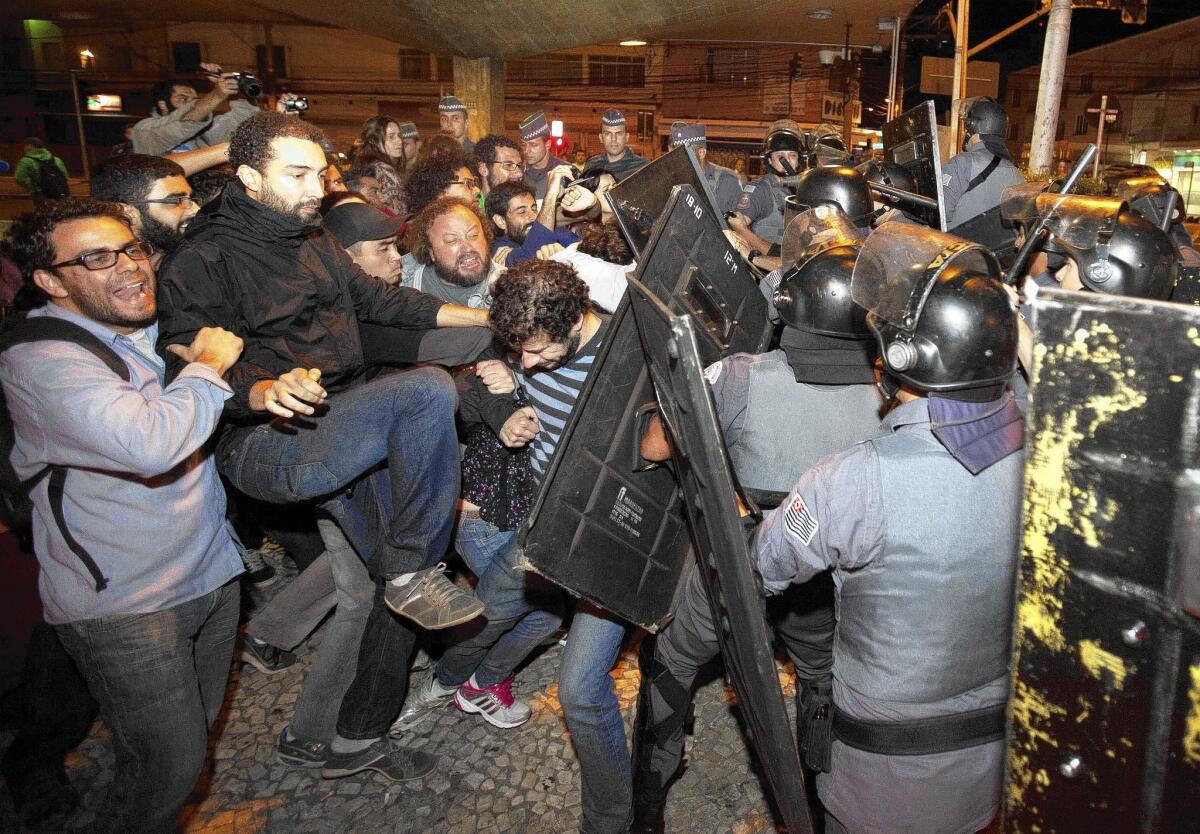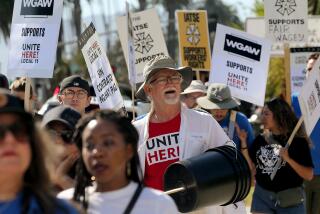In Brazil, group scores victory in land protest before World Cup

- Share via
Reporting from Sao Paulo, Brazil — With the start of soccer’s World Cup tournament just days away, officials agreed Monday to demands that a piece of land occupied by poor families be used for low-income housing, but much of the rest of Sao Paulo remained paralyzed by a subway strike.
Of all the demonstrations in the weeks before the World Cup, which begins Thursday, the Homeless Workers Movement had put the most people on the street. Protests and strikes have taken aim at what participants say is Brazil’s overspending and misplaced priorities focusing on the international sporting event.
A smaller number of transit workers have managed to bring much of South America’s largest city to a halt since Thursday, and failed again to reach a settlement with the state government Monday. Soccer’s governing organization has demanded that a solution be found soon.
The transit workers decided late Monday to suspend their strike until Thursday, when they promised to walk off the job again unless officials meet their demands.
The Homeless Workers Movement said the agreement to end the land occupation was a “great victory.”
“The conquests … will mean benefits for the millions of families that suffer due to Brazil’s housing problem,” it said in a statement.
In early May, thousands of families occupied a piece of land near the stadium where the opening match will be held, demanding that the privately held but unused property be turned over to poor Brazilians who have been priced out of their neighborhoods by World Cup development.
The settlement, dubbed the People’s Cup, became the most emblematic of the Homeless Workers’ recent actions, which included thousands of supporters marching across the city’s freeways under red flags.
“I’m here because my aunt and I need a place of our own to live,” said 16-year-old student Wesley Castanhede Almeida, who camped out last month with the Homeless Workers. “I’m excited about the World Cup, sure. But we have needs.”
The Homeless Workers, a left-wing group carrying on the decades-old tradition of Brazil’s land occupations, said the government agreed to provide 2,000 housing units on the land and form a commission to prevent forced removals from property.
Public opinion has soured on the World Cup, with Brazilians complaining of corruption and overspending, and billions of dollars spent on stadiums and other preparations even as the country sorely needs better healthcare, education and public transportation.
Sao Paulo’s Arena Corinthians stadium lies far from the city center, and most fans attending the opening game Thursday will rely on the Metro to get there. Before the strike, a trip from downtown Sao Paulo to the stadium took roughly 20 minutes by subway. On Friday, as the strike stopped trains and clogged the streets, the same trip took two hours and cost the equivalent of $70 in taxi fare.
Bevins is a special correspondent.
More to Read
Sign up for Essential California
The most important California stories and recommendations in your inbox every morning.
You may occasionally receive promotional content from the Los Angeles Times.









